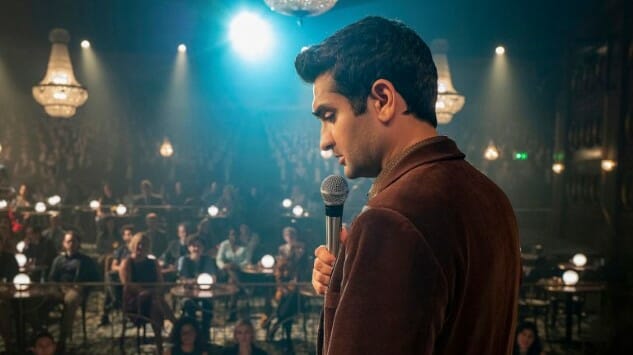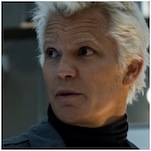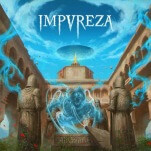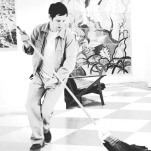“The Comedian” Is Vintage Twilight Zone, But Not in the Way You’d Want
Photos via CBS All Access
More so than series opener “Nightmare at 30,000 Feet,” the second episode of Jordan Peele’s Twilight Zone reboot feels like a premise that could easily have existed in the show’s original run.
Unfortunately, this is not a good thing.
“The Comedian,” directed by Owen Harris—who, oddly enough, is responsible for the best episode of Black Mirror, “San Junipero”—is an unexpected reminder of what The Twilight Zone is like, and what it has always been like, when it’s not firing on all cylinders. It’s an overlong 54 minutes of streaming TV, grasping for gravitas while not possessing enough substance to fill half of its running time.
What it feels like, then, is all too many episodes from the original run of The Twilight Zone—the episodes that somehow never get replayed during SyFy’s annual New Year’s Eve marathons. In particular, “The Comedian” feels like an entry from TZ’s fourth season, when network executives pressured series creator Rod Serling into stretching the show into a 60-minute timeslot against his wishes. The experiment was a failure, largely owing to the fact that The Twilight Zone’s high-concept premises tended to work best when they built up quickly and fluidly to their payoffs, without time for the audience to anticipate the twist. At 60 minutes, they tended to bog down into repetition of the same material throughout the middle, and the exact same issue affects “The Comedian.” It suffers from, among other things, a far too gradual sense of escalation when the audience can already clearly see what will eventually happen.
The star of “The Comedian” is Kumail Nanjiani, a very talented, easy to like presence who anchored the likes of The Big Sick. Here as Samir, though, he’s a hopeless case who is clearly not cut out for the comedy world. His standup sets are embarrassingly guileless attempts at leftist political humor—Hasan Minhaj segments, if you stripped out 75 percent of the jokes and 100 percent of the delivery. In Samir’s mind, comedy is a pure art form, wherein laughter should somehow be derived from intent and desire to change the world, rather than material or skill in delivering it. In Samir’s world, the best comedy would therefore somehow be Washington Post editorials, read out loud. It’s no wonder that he needs a Mephisto-esque figure to show up and offer him a more successful future.
This is of course precisely what happens, in the form of Tracy Morgan, playing a legendary comedian who is meant to be projecting some sense of devilish menace, but instead seems simply out of place. This fellow gives Samir some advice, tempting him with the prospect of success and earthly pleasures if he makes his act more personal and relatable. The only catch: The things he talks about will be “gone forever,” co-opted by his audience.
-

-

-

-

-

-

-

-

-

-

-

-

-

-

-

-

-

-

-

-

-

-

-

-

-

-

-

-

-

-

-

-

-

-

-

-

-

-

-

-








































